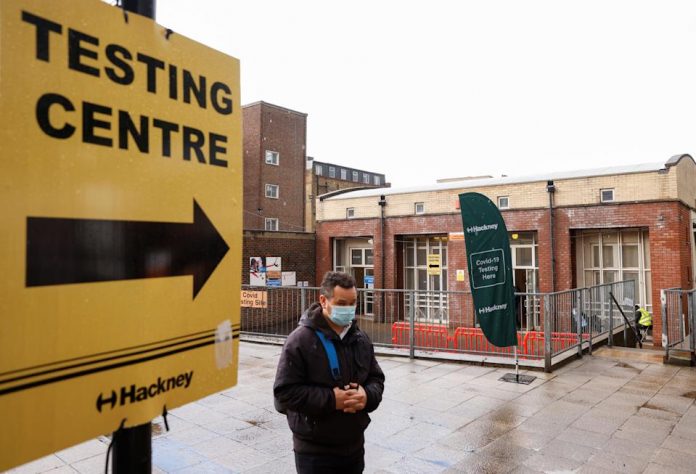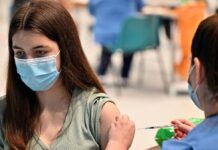
The coronavirus pandemic will be finished in the UK if the vaccines being administered nationwide are effective in stopping people being hospitalised with B.1.617.2 variant first identified in India, the head of the Oxford vaccine trials has said.
Andrew Pollard, director of Oxford Vaccine Group, on Monday morning said the “critical” question in relation to this variant, which is surging in numerous parts of the country, was whether the vaccines currently being rolled out stop most people requiring hospital treatement after catching it.
Scientists “need just a few more weeks” to collect the data they need find out, he told BBC Radio 4’s Today programme.
“In some ways, we are looking at the wrong exam question,” Pollard said.
“This question is about mild infection and transmission. But the thing that makes this a pandemic is people going into hospital. What we really need to know – and we don’t have the data yet for certain – is how well both vaccines perform in preventing people from going into hospital.
He added: “What we’ve seen so far in the pandemic is that protection from vaccines against hospitalisation and death is much, much higher than the protection against mild infection, which is what these tests are detecting.
“So what I’m waiting for is the answer to that exam question, which is the critical one to understand how we should respond in the future to new variants, is to find out whether these infections we are starting to see a bit with this current variant are completely uncoupled from hospitalisations and deaths”.
Asked what it would mean if existing vaccines are found to be effective in preventing the B.1.617.2 variant causing hospitalisation, Pollard said: “If the current generation of vaccines are able to stop people going into hospital, while there are still mild infections and people still get the common cold with the virus, then the pandemic is over. Because we can live with the virus.
“In fact, we are going to have to live with the virus one way or another. It does not matter if most people are kept out of hospital because then the NHS can continue to function and life can get back to normal.
“We just need a bit more time to have certainty around this”.
While the variant first identified in India continues to spread quickly in the north of England and parts of London, there is growing optimism within government that its impact will be lesser than initially feared, thanks largely to the protection provided by the vaccines already in circulation.
Prime Minister Boris Johnson is set to use a public update to the country this week to signal that the country is likely to go ahead with the final lifting of restrictions on June 21, The Telegraph reports.
Public Health England (PHE) announced on Saturday that two doses of the current jabs vaccines are “highly effective” in preventing people catching the B.1.617.2 variant.
A PHE study found that both the Pfizer-BioNTech and AstraZeneca jabs had a “minimal reduction” in effectiveness against the variant first identified in India compared to the Kent variant and that they are expected to have even higher levels of effectiveness in preventing hospitalisations and deaths.
Matt Hancock, the secretary of state for health and social care, said the findings were “groundbreaking”.
“We can now be confident that over 20 million people – more than 1 in 3 – have significant protection against this new variant, and that number is growing by the hundreds of thousands every single day as more and more people get that vital second dose,” he said.
Dr Jenny Harries, head of UK Health Security Agency, on Sunday said she and colleagues advising ministers were “increasingly confident” that the recent surge in cases of the B.1.617.2 variant would not lead to a spike in hospitalisations and deaths.
“It is still quite early days and we will be familiar with waiting about two weeks after a surge in cases for hospitalisations and another two weeks for deaths, so we will just have to wait and see.
“But at the moment we are not seeing reductions in effectiveness in serious diseases or deaths and we are feeling increasingly confident that that will be the case,” she said.






